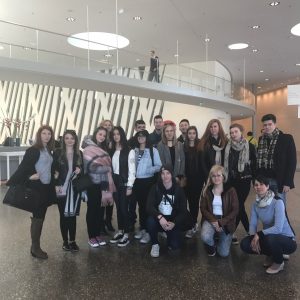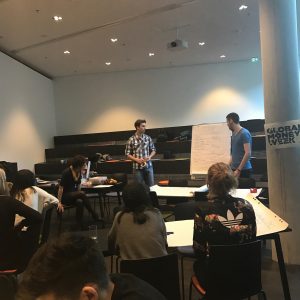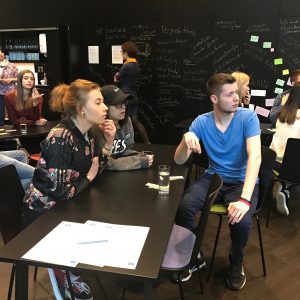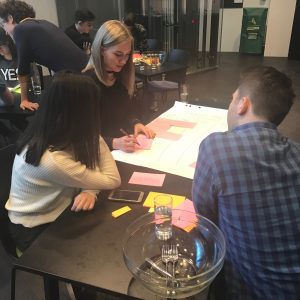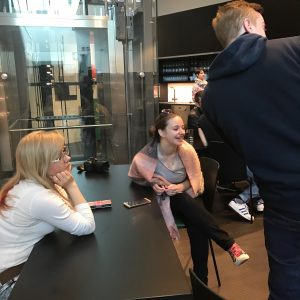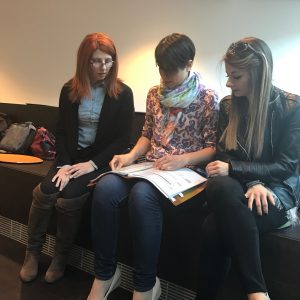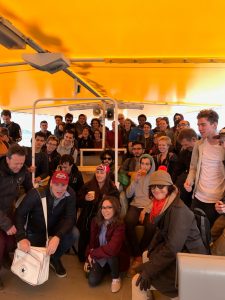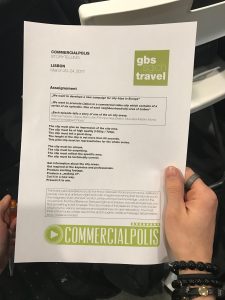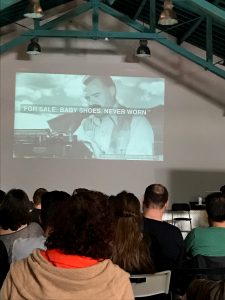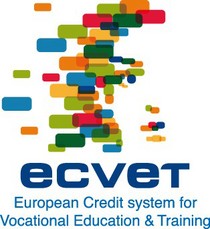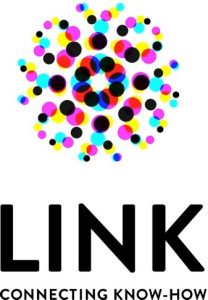
LINK 2 project has been running for almost three years and it is the time for analyzing the results and submitting the final report. During the project seven transnational meetings and five blended learning activities were arranged with participants from all five partners and the associated partner from Switzerland. The blended learning activities gave the possibility to work together during five working days combining the teaching activities and the other areas that are covered in this project – administration of the project, meta theme and frame theme.
The project had three major areas to cover in the project:
- The basic theme on packaging design and production should result in the planning and description of 5 week courses with different focus on topics in the area of ‘packaging’.
- The meta theme should result in inspiration, guidance of best practice and experience on pedagogic practice and the education of teachers in each country. The possibility of blended learning and digital classroom should be investigated.
- Theframe theme about how to prevent dropout from the VET educations should likewise result in inspiration, guidance of best practice and experience of effective actions.
The major achievements of this project are as follows (in no particular order of importance):
INSPIRATION – A great inspiration for all participants – both staff members and students- to work together and share knowledge and methods. The staff members have been almost the same persons in all meetings and the possibility of learning other professionals working in the graphic area of education and work together have produced a lot of good ideas and along the way developed the way teachers work in their own environment. The added value of being together and see each other work as coaches in the students working groups has produced new ideas and knowledge to each teacher.
JOB-SPECIFIC AND TRANSVERSAL SKILLS – The students have learned a lot about the specific topics of the activities they participated in. Apart from that the challenges of working together in groups where each group member represented a different level of skills and knowledge and with different levels of language skills have been rewarding and a positive experience to almost all. During one week of intensive learning and with intensive social life aside transnational friendships has developed.
CULTURAL LEARNING – Each of the participants – students and staff members – have learned a lot about the ways of living in the participating partner countries, learned about design and production traditions in the area of packaging in the counties and first of all the language skills (in English) has improved during the project-period. For the staff-members because we have had the opportunity to develop a common language, and for the students we have experienced that the level of English skills have become better and better.
INNOVATION –New curricula in the field of packaging design and marketing has not formerly been running. It has been innovative to develop these curricula’s alongside with the two other themes on pedagogic and didactic aspects in teachingin the area of graphic design and production and politics to prevent students drop out from the educational systems. The awareness of having a focus on the to last themes when performing educational activities have produced new ideas and developed new methods of teaching.
DIGITAL SKILLS – New software skillshas been introduced – unknown to both teachers and students – like ESKO and EngView for cad/cam production of packaging and Balsamiq, Sketch and Invision for design of e-business homepages.
SUSTAINABILITY – LINK 2 is a testament of the effectiveness of long-term partnerships. Less time is spent on getting to know each other and more is spent on co-creating, peer learning and producing results. The network is strong enough now to also evolve into completely new vocational areas and themes.
From the start of the project the participants have had two sayings in their minds: “thinking out of the box” and “looking over the fence” to express the idea of leaving habits and as-usual’s back home and be innovative and bring in elements that are complementary to the ways things are normally done.
The project team is convinced that the project has brought new ideas and methods to all of the partners and that the results that achieved will bring inspiration to other schools and organizations working in the field of graphic education.
Learn more about the project here: https://thebestlink.org/
A follow-up project, LINK 3 – Quality of digitalization in VET, with a slightly wider focus will be submitted by HANSENBERG, DK in March 2017.
More information:
Jyväskylä College – Vesa Iltola and Markku Tiihonen (at)jao.fi
NEXT, Copenhagen – Project Leader Claus Bojsen Pedersen cbp(at)nextkbn.dk
